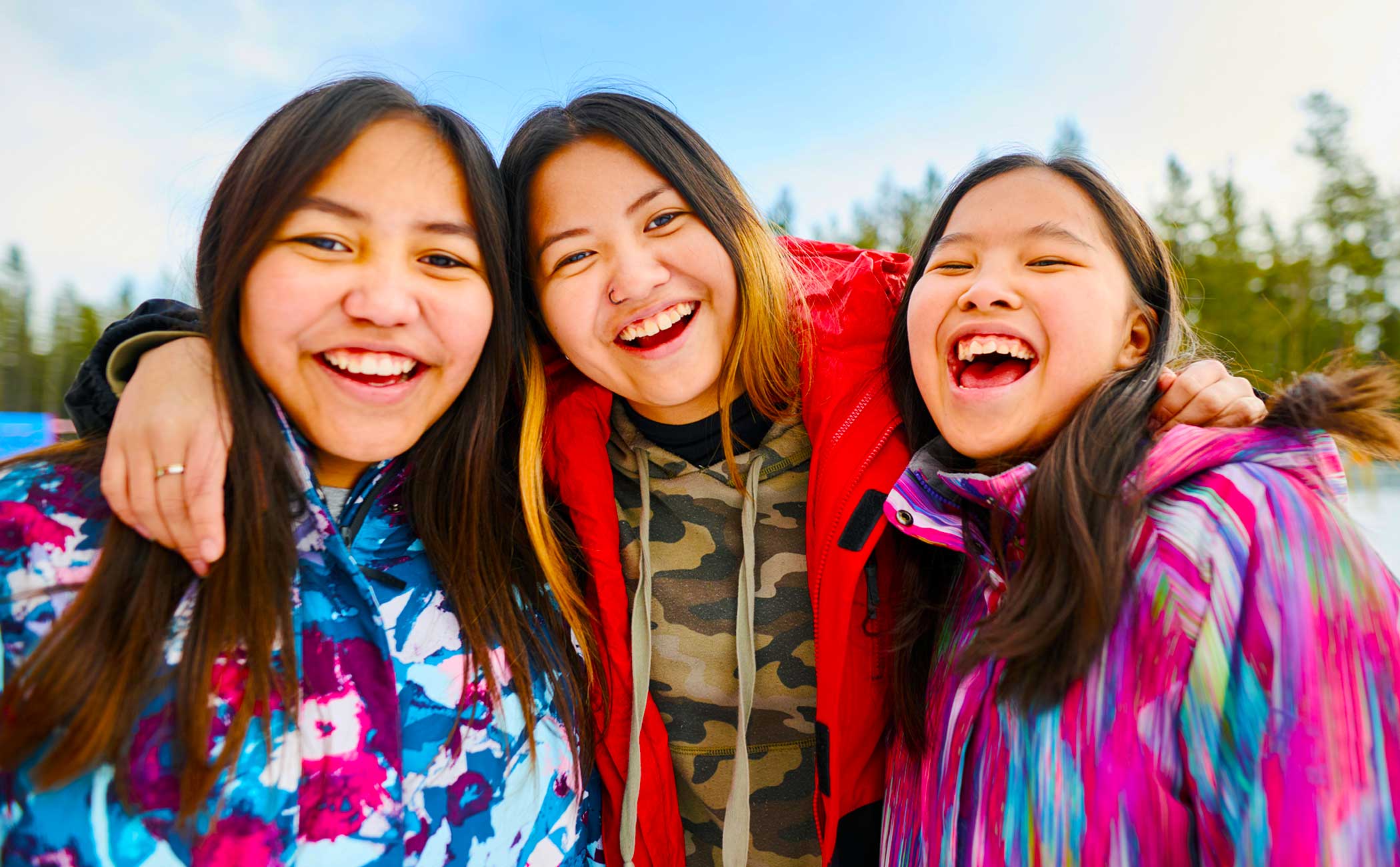
Project affirms voices of Indigenous LGBTQ and two spirit youth
10 Apr 2023 By Chuck Green, CYFS
Indigenous youth with lesbian, gay, bisexual, transgender, queer and two-spirit (LGBTQ2S) identities experience high rates of violence, which may lead to harmful outcomes, such as mental health problems and substance abuse.
But despite the issues faced by Indigenous LGBTQ2S youth, a recent study suggests reasons for optimism.
Katie Edwards, associate professor, CYFS and educational psychology, and Ramona Herrington, cultural outreach manager at the Interpersonal Violence Research Laboratory, recently led a project funded by an Office of Research and Development Layman Award to develop and evaluate a communitywide, culturally grounded initiative to prevent violence and reduce health disparities among Indigenous LGBTQ2S youth.
Other researchers involved in the project include Jordan Catlett, clinical therapist in Sioux Falls, South Dakota; Bridget Diamond-Welch, director of research and innovation, School of Health Sciences, University of South Dakota; Lenny Hayes, founder and director of Tate Topa Consulting; April Matson, outreach coordinator, South Dakota Urban Indian Health; and Char Green Maximo, grant project manager, South Dakota Urban Indian Health.
Several UNL graduate students in Educational Psychology also participated in the research project.
The project was designed to identify the unique challenges and strengths of Lakota LGBTQ2S youth and identify culturally grounded initiatives to support their health and well-being.
Findings suggest that while Lakota LGBTQ2S youth experience a wide range of challenges — including depressive symptoms, alcohol use, trauma, bullying, teen dating violence, internalized homo/bi/transphobia and family rejection — they also possess strength and resilience.
The youth were empowered by connecting to their Indigenous culture, belonging to a community, feeling that they matter to others and having hope for the future.
“We learned that although many of the youth have limited resources, they learn how to make do with what they have to take care of themselves emotionally, mentally and spiritually,” Herrington said.
A three-day retreat in August 2022 included 36 Lakota LGBTQ2S youth, ages 13 to 18, living on a South Dakota reservation. Additionally, 23 adults who work with or care for these youth also participated. The retreat included surveys, focus groups and arts-based activities, along with two talking circles.
“We wanted to give LGBTQ2S youth a space to feel validated and affirmed and to amplify their voices,” Edwards said. “We wanted to understand the challenges they face, as well as their strengths, and discuss ideas for what they need to support and affirm them.”
During the retreat, participants discussed the importance of communitywide and family specific interventions to increase accepting behaviors, and youth shared their desire for support groups. Adults said that learning about the positive histories of Two Spirit relatives in traditional Lakota culture would help to support community wide acceptance of Lakota LGBTQ2S youth.
“One thing that stood out to me was the number of adults who participated in the talking circles who identify as LGBTQ2S and needed that space, too,” said Jordan Catlett, a clinical therapist in Sioux Falls, South Dakota, and a project research partner. “They were adults and until now, there were limited opportunities for them to have these discussions.”
Many participants pinpointed the isolation they felt.
“At first, some of them were scared to open up,” Herrington said. “After the third day, they wanted us to come back. I was amazed at how many of them stepped forward, spoke up and were willing to take that risk and be good leaders.”
Herrington said participants’ positive perceptions of the event confirmed that more opportunities for learning, connection and support are needed.
Edwards said she was moved by the youths’ kindness, curiosity and gratitude for the experience.
“They have such an innate goodness within them,” she said. “We all have this desire to protect that goodness and innocence — and determine what we can do to support them to help them thrive in the future.”
Hayes noted that before North American colonization, Indigenous individuals who identified as two-spirit LGBTQ+ were honored, respected and treated as holy because of the roles they played in tribal communities. Colonization, he said, has changed how LGBTQ2S are viewed today.
“Our youth should be cherished and honored for who they are,” Hayes said. “We as LGBTQ2S leaders across Indian country are working hard to bring back that beauty and balance of this identity individually and collectively across tribal communities. We must address what colonization did to this population and bring back safety, acceptance, and inclusion for these young people.”
Edwards noted that adult allies are crucial for LGBTQ2S youth.
“So much of what they want is just to be heard, and feel accepted, loved and cared for,” she said. “Being around LGBTQ2S-identified adults was important to them, so they see role models and so they see people who are doing well in their lives. That instills hope, which is what helps them get through some of those tough experiences.”
Learn more about this project in the CYFS Research Network. This project aligns with the UNL Grand Challenges of anti-racism and racial equity and health equity.
College of Education and Human Sciences
Comprehensive Health & Well-Being